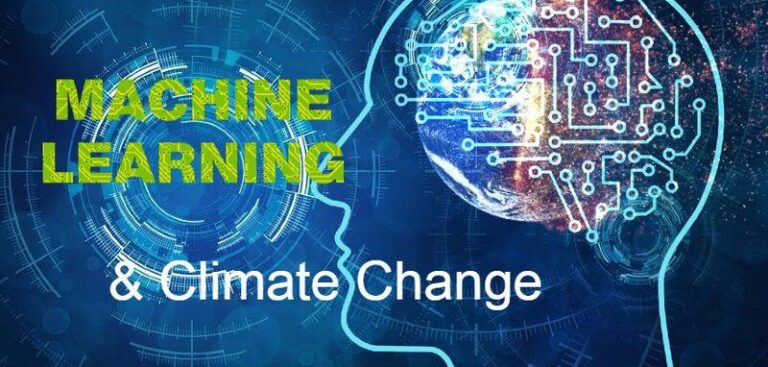The Intergovernmental Authority on Development (IGAD) Climate Prediction and Applications Centre (ICPAC) has been developing climate storylines through machine learning and last-mile co-production to enable better early warning and forecasting.
According to the organization, artificial Intelligence (AI), together with user engagement, presents a practical pathway for delivering weather and climate information to end users, promoted by approaches such as participatory scenario planning (PSP).
Deep uncertainty caused by more erratic climate patterns has made it difficult for societies to accurately predict future climate scenarios. The organization has asserted that AI-based tools, such as Bayesian networks, can overcome this barrier by analyzing past climate-related events and generating climate storylines. Climate storylines are alternative narratives of past climate conditions. They focus on telling the worst-case scenario of actual climate conditions, known as downward counterfactual. By design, climate storylines rely on local experts and stakeholders to establish several factors that will determine the impact of each storyline and improve risk awareness and resilience. Using the diagrammatic representation of numerous variables by the Bayesian network and storylines will help gather expert judgment and give probabilistic weightage on the climatic factors.
Studies have shown that AI can boost adaptation and resilience capacity at various levels of the climate services value chain. Adaptation and resilience can be achieved by improving the projections of the long-term effects of extreme climate events. Eastern Africa is particularly exposed to climate change; therefore, identifying and distinguishing individual, societal and behavioral environmental or climate impact predictors is essential. Tools such as Bayesian networks, coupled with a robust user engagement approach to developing co-produced and co-owned climate storylines, are found to be vital for decision making at the grassroots level.
Maladaptation refers to a situation where an adaptation strategy aimed at or undertaken by a community makes them more vulnerable to climate change than they were previously. The rise in population in Eastern Africa, coupled with over-reliance on rain-fed agriculture, has increased the demand for arable land, often leading to encroachment in areas such as rangelands. Encroachment, though well-intentioned, has a negative impact on land use. Therefore, irrespective of data that accurately indicates changes in weather and climate, maladaptation practices undermine any intervention and exacerbate pre-existing weather and climate events such as droughts and floods.
Suppose agro-pastoralists in the arid and semi-arid lands of Eastern Africa, for instance, shift from water-intensive crops such as rice or cotton that have dependable markets toward drought-tolerant crops, such as sorghum and millet. In that case, this could be an expensive and laborious investment that holds potential but may fail due to market instability and diet trends. This means that even where behavior change is expected of the farmers, it should be within the context of the existing market and social realities and based on the jointly produced climate storylines.
The organization found it essential to apply the key principles of user engagement (trust, transparency, respect, etc.) where the climate storylines provide links to what the farmers should expect and consequently do. This will answer critical questions related to data about the weather and climate trends of a region. Climate data covers details such as seasonal average temperatures or decade-long patterns of rain and contributes to climate prediction, while weather data tracks and predicts short-term patterns and trends which may be used to develop storylines about the forecast.
Weather data is vital to agriculture and food security planning at the household level. Therefore, it is essential to ask communities for their input in producing weather and climate storylines. This can be captured through surveys and focus group discussions, allowing members to contribute to the storylines that can be used in decision-making.
Storylines can be in the form of graphic illustrations or drawings, which is ideal for communities with low literacy levels. The communities are provided with illustrations and key weather events that form a basis for discussions and their contribution to the storylines. Maladaptive practices are also identified during the discussions, and local experts help point out the implications of such practices.
Participation of communities using both text and visuals and including key stakeholders such as elderly people, traditional forecasters, women, youth and local sector experts, supports the alignment of the storylines with the vision of the communities. This approach creates ownership of the AI-led process at the end-user level.
The challenges posed by climate change require solutions based on the shared vision of all stakeholders in society. Understanding past climate-related disaster events, based on consensus, is instrumental in charting a way forward. Storylines with the application of Bayesian networks help capture local stakeholders’ expert judgment leading to better decision-making processes and anticipatory actions. In addition, approaches such as participatory scenario planning (PSP) can be strengthened through tools like Bayesian networks in Eastern Africa, reaching remote communities with more accurate and co-owned methods at the grassroots level.
This solution has been developed in the wake of the five consecutive failed rainfall seasons in Eastern Africa and the impact this is having on the environmental, social and economic structures of tens of millions of people. It was designed to provide alternative paths for providing information to end users, who, in most cases, are highly vulnerable to the effects of climate change when early warning information is held up by bottlenecks in the climate services value chain.



